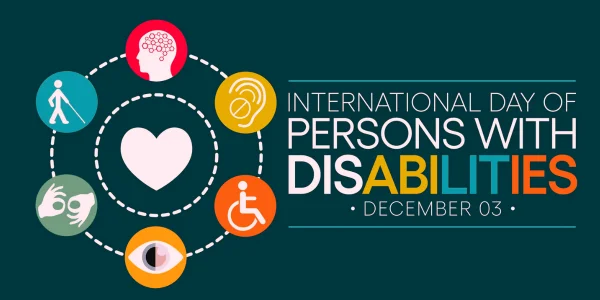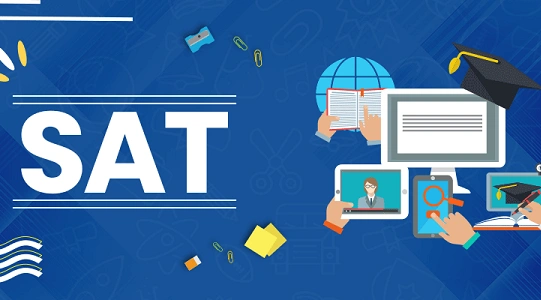The International Day of Persons with Disabilities (IDPD), observed annually on December 3, is a global initiative established by the United Nations (UN) to promote the rights, dignity, and well-being of persons with disabilities. This day also highlights the importance of inclusion and accessibility in society, aiming to raise awareness about the challenges faced by the over 1 billion people globally who live with disabilities.
Here’s everything you need to know about the origins, significance, and ways to commemorate the International Day of Persons with Disabilities, along with the ongoing global efforts to create an inclusive and equitable world.
History and Origins

The United Nations proclaimed December 3 as the International Day of Persons with Disabilities in 1992, through Resolution 47/3. This followed the conclusion of the United Nations Decade of Disabled Persons (1983–1992), which focused on the development of inclusive policies and programs for persons with disabilities.
The observance serves to reaffirm the Convention on the Rights of Persons with Disabilities (CRPD), adopted in 2006, which emphasizes the full and equal enjoyment of human rights and fundamental freedoms by all persons with disabilities.
Significance of the Day
The International Day of Persons with Disabilities is significant for several reasons:
- Raising Awareness: It draws global attention to the challenges faced by persons with disabilities, including barriers to education, employment, healthcare, and social participation.
- Advocating for Inclusion: The day promotes the need for inclusive policies and practices that empower persons with disabilities to lead independent and fulfilling lives.
- Promoting Accessibility: It emphasizes the importance of creating environments that are accessible to all, including physical infrastructure, digital spaces, and public services.
- Driving Global Action: The observance aligns with the 2030 Agenda for Sustainable Development, particularly Goal 10 (Reduced Inequalities) and Goal 11 (Sustainable Cities and Communities).
Theme of 2023: “Transformative Solutions for Inclusive Development”
Each year, the International Day of Persons with Disabilities adopts a specific theme to focus on key issues. The theme for 2023, “Transformative Solutions for Inclusive Development,” highlights the importance of innovation and collaborative efforts in creating a world where persons with disabilities can thrive.
Key focus areas include:
- Employment: Developing policies that promote workplace inclusion and address unemployment among persons with disabilities.
- Education: Advancing accessible and inclusive educational systems that accommodate diverse needs.
- Technology: Leveraging digital tools and assistive technologies to enhance independence and participation.
Challenges Faced by Persons with Disabilities
Despite global progress, persons with disabilities continue to face significant challenges, including:
- Stigma and Discrimination: Misconceptions and stereotypes often lead to social exclusion and unequal treatment.
- Limited Accessibility: Inadequate infrastructure and inaccessible technology restrict opportunities for education, employment, and mobility.
- Higher Poverty Rates: Persons with disabilities are disproportionately affected by poverty due to barriers to employment and education.
- Healthcare Inequities: Many individuals with disabilities face difficulties accessing adequate healthcare services.
- Underrepresentation: Persons with disabilities are often excluded from decision-making processes that affect their lives.
Global Efforts to Promote Inclusion
Several international initiatives and frameworks have been established to promote the rights and well-being of persons with disabilities:
- Convention on the Rights of Persons with Disabilities (CRPD): This legally binding treaty ensures that persons with disabilities enjoy all human rights and freedoms without discrimination.
- UN Disability Inclusion Strategy: Launched in 2019, this strategy aims to make the United Nations system more inclusive and accessible for persons with disabilities.
- Sustainable Development Goals (SDGs): The SDGs emphasize reducing inequalities and ensuring access to education, employment, and healthcare for all, including persons with disabilities.
- World Health Organization (WHO) Initiatives: WHO supports rehabilitation programs and the development of assistive technologies to enhance the quality of life for persons with disabilities.
How the Day is Observed
The International Day of Persons with Disabilities is marked by events and initiatives worldwide to promote inclusion and accessibility:
- Educational Campaigns: Schools, universities, and organizations host seminars and workshops to raise awareness about disability rights and inclusion.
- Policy Advocacy: Governments and advocacy groups announce initiatives and policies aimed at improving accessibility and support for persons with disabilities.
- Cultural Events: Art exhibits, music performances, and film screenings showcase the talents and stories of persons with disabilities.
- Community Activities: Local organizations organize activities such as accessible sports events and inclusive job fairs.
- Media Outreach: Social media campaigns and public service announcements highlight stories of resilience and advocate for systemic change.
How You Can Contribute
Everyone can play a role in promoting the rights and inclusion of persons with disabilities. Here are a few ways to contribute:
- Educate Yourself and Others: Learn about disability rights and the challenges faced by persons with disabilities, and share this knowledge with your community.
- Advocate for Accessibility: Support efforts to make public spaces, digital platforms, and workplaces more accessible.
- Promote Inclusive Policies: Advocate for laws and policies that protect the rights of persons with disabilities and promote their inclusion.
- Volunteer or Donate: Support organizations that work to empower persons with disabilities and provide essential services.
- Challenge Stigma: Speak out against stereotypes and discriminatory attitudes toward persons with disabilities.
Looking Ahead: A More Inclusive Future
Creating a truly inclusive society requires collective action at every level—individual, community, and global. Governments, businesses, and organizations must prioritize accessibility and inclusion, while individuals can contribute by fostering understanding and advocating for change.
Innovation and technology also play a pivotal role in driving progress. Assistive devices, inclusive education tools, and accessible infrastructure can transform lives, enabling persons with disabilities to participate fully in society.
Conclusion
The International Day of Persons with Disabilities is more than just a day of recognition—it is a call to action. It reminds us of the importance of building a world that values diversity, ensures equity, and empowers every individual, regardless of ability. By working together to eliminate barriers and create opportunities, we can move closer to a future where inclusion and dignity are universal. Let us reaffirm our commitment to promoting the rights and well-being of persons with disabilities, making sure no one is left behind.

